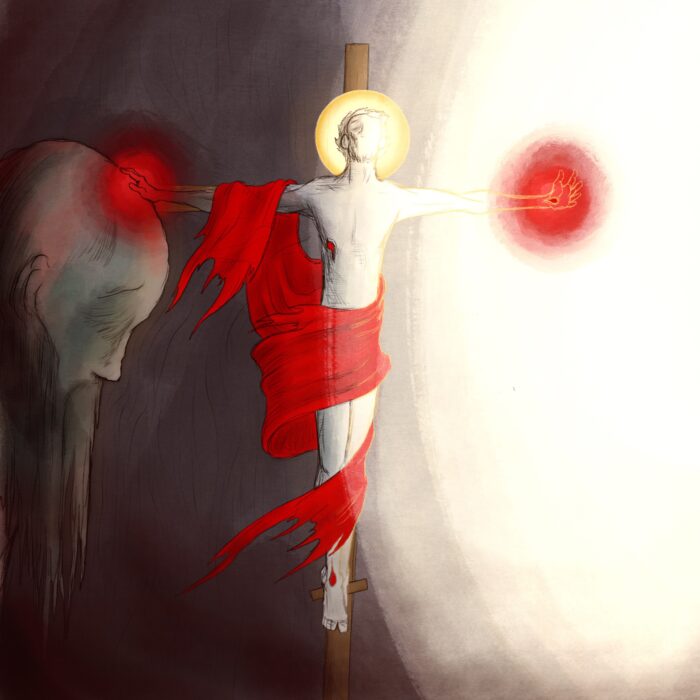Job 19:25-26, ‘For I know that my Redeemer lives, and at the last He will stand upon the dust. And after my skin has been thus destroyed, yet in my flesh I shall see God.’
With these words, it is as though the the skeletal hand of Job’s faith, livened by the breath of the Spirit, reaches up from the ashes of his present suffering to hold fast to the hem of the Master’s garment…Though there are ten-thousand things Job does *not* know in the midst of his seemingly meaningless suffering, one thing he *does* know is that his Redeemer lives…the One to whom his life is bound, the One upon whom all his hopes are anchored, the One who carries his soul upon His shoulders—this one Lives, and therefore Job will not finally despair. Ultimately, the preservation of Job’s life depends on the life of another… ‘Because [He] lives, [Job] also will live’ (Jn 14:19).
And it is not that this Redeemer lives in some transcendent, inaccessible realm, but that He will stand upon the very dust of this earth. That word ‘dust’ is a favorite one in the book of Job. It is often used for the place of death (cf. 10:9, 17:16, 21:26, etc. ), or specifically in relation to the sufferings that Job endures (cf. 16:15, 30:19). Thus, Job’s statement that his living Redeemer will stand upon the ‘dust’ means more than just the presence of the Incarnate Redeemer on the earth (though it does mean that), but it means that—in the very place where Job is suffering, on the very ashes of his lamentation, right in the heart of his curse-shattered, mortal groaning—*there* the Redeemer will stand in victory, *there* the Redeemer will make Himself known, *there* Job will see the one for whom his soul was made and will—at last—be satisfied.
This Redeemer takes His stand upon the ‘dust’ when He rises up from that dust on Easter morning…and where the Redeemer stands, there is Freedom…where the Redeemer stands, there is Life…Where the Redeemer stands, the curse-torn wounds of His curse-trampling feet flow as springs of living water, turning the dust of mortal despair into the fertile soil of resurrection hope and the ashes of our lamentation into the fields of the Father’s glory.




